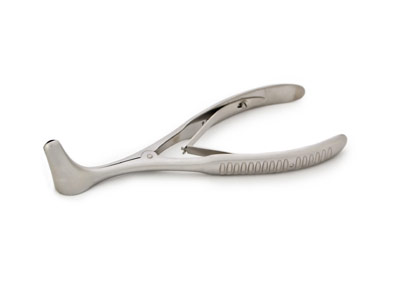What is sinusitis?
Acute bacterial sinusitis is an infection of the sinus cavities caused by bacteria. It usually is preceded by a cold, allergy attack, or irritation by environmental pollutants. Unlike a cold, or allergy, bacterial sinusitis requires a physician’s diagnosis and treatment with an antibiotic to cure the infection and prevent future complications.Normally, mucus collecting in the sinuses drains into the nasal passages. When you have a cold or allergy attack, your sinuses become inflamed and are unable to drain. This can lead to congestion and infection. Your doctor will diagnose acute sinusitis if you have up to 4 weeks of purulent nasal drainage accompanied by nasal obstruction, facial pain-pressure-fullness, or both. The sinus infection is likely bacterial if it persists for 10 days or longer, or if the symptoms worsen after an initial improvement.
When does acute sinusitis become chronic?
When you have frequent sinusitis, or the infection lasts three months or more, it could be chronic sinusitis. Symptoms of chronic sinusitis may be less severe than those of acute; however, untreated chronic sinusitis can cause damage to the sinuses that sometimes requires surgery to repair.
What treatments are available?

Antibiotic therapy – Therapy for bacterial sinusitis should include an appropriate antibiotic. If you have three or more symptoms of sinusitis (see chart), be sure to see your doctor for diagnosis. An oral or nasal spray or drop decongestant may be recommended to relieve congestion, although you should avoid prolonged use of non-prescriptive nasal sprays or drops. Inhaling steam or using saline nasal sprays or drops can help relieve sinus discomfort.
Antibiotic resistance means that some infection-causing bacteria are immune to the effects of certain antibiotics prescribed by your doctor. Antibiotic resistance is making even common infections, such as sinusitis, challenging to treat. You can help prevent antibiotic resistance. One way is to wait up to 7 days before taking antibiotics for mild sinus infections, allowing time for your body to fight the infection naturally. If the doctor prescribes an antibiotic, it is important that you take all of the medication just as your doctor instructs, even if your symptoms are gone before the medicine runs out.
Intensive antibiotic therapy – If your doctor thinks you have chronic sinusitis, intensive antibiotic therapy may be prescribed. Surgery is sometimes necessary to remove physical obstructions that may contribute to sinusitis.
Sinus surgery – Surgery should be considered only if medical treatment fails or if there is a nasal obstruction that cannot be corrected with medications. The type of surgery is chosen to best suit the patient and the disease.
Functional endoscopic sinus surgery (FESS) is recommended for certain types of sinus disease. With the endoscope, the surgeon can look directly into the nose, while at the same time, removing diseased tissue and polyps and clearing the narrow channels between the sinuses. The decision whether to use local or general anesthesia will be made between you and your doctor, depending on your individual circumstances.
Before surgery, be sure that you have realistic expectations for the results, recovery, and postoperative care. Good results require not only good surgical techniques, but a cooperative effort between the patient and physician throughout the healing process. It is equally important for patients to follow pre- and postoperative instructions.



